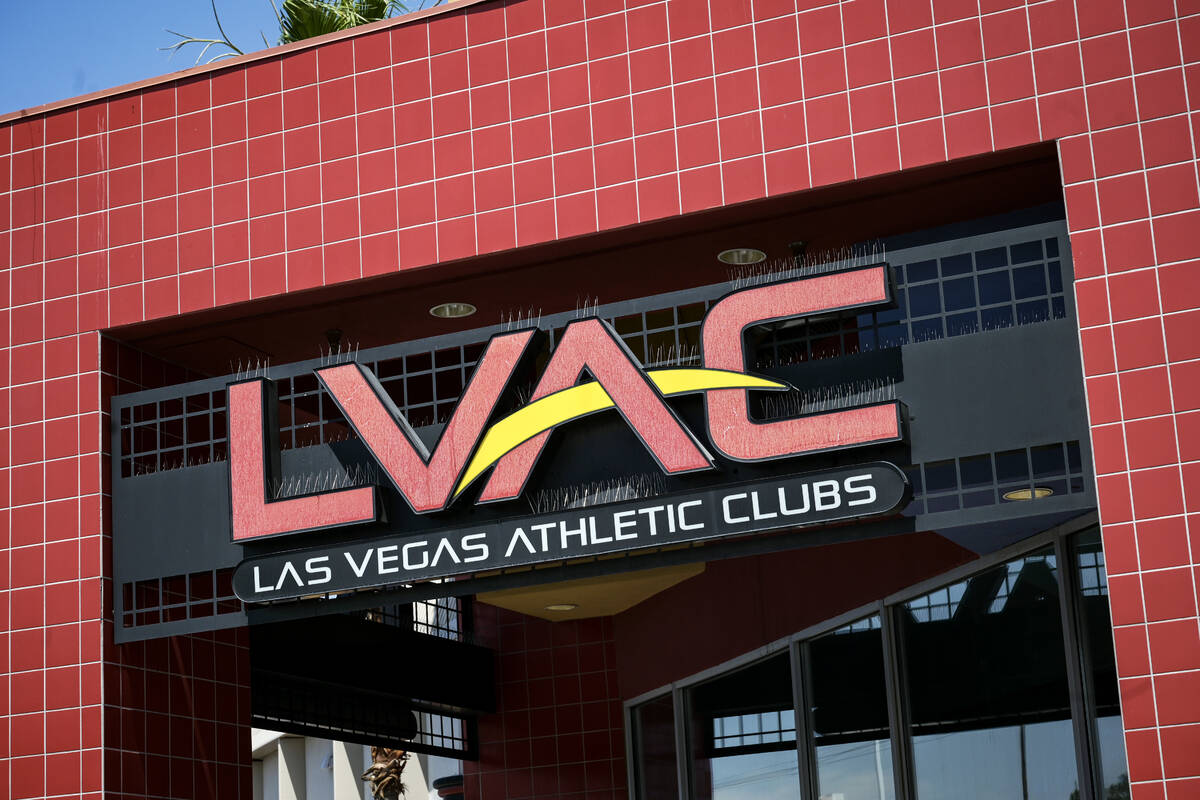LVAC sues health district over lifeguard rule 4 months after woman drowns
Four months after a woman drowned at one of its pools, Las Vegas Athletic Clubs is taking legal action against the Southern Nevada Health District over changes to its lifeguard policy.
LVAC filed a lawsuit in Clark County District Court over the Southern Nevada Health District’s decision to no longer allow an exception of a rule which required lifeguards to monitor gym pools.
In its lawsuit, LVAC is asking a judge to allow it to continue to operate its pools and for compensatory damages to be paid due to SNHD’s actions.
SNHD on June 13 issued a denial of an appeal from LVAC, which sought to be exempted from having lifeguards monitor its pools and allow for remote monitoring. The health district cited the death of a woman in one of the health club’s pools in the report. LVAC was first exempted from having lifeguards monitor its pools in 2020.
LVAC couldn’t immediately be reached for comment on the lawsuit. A spokesperson for SNHD said the district doesn’t comment on pending litigation.
Drowning incident lasted for 20 minutes
Leticia Triplett, 58, drowned Feb. 4 in a pool at LVAC’s North Decatur location, according to SNHD and the Clark County coroner’s office. The coroner’s office ruled the death as a drowning and an accident.
SNHD said in its report that the drowning incident lasted for 20 minutes and Triplett was unresponsive for 10 minutes.
LVAC contends in its lawsuit, filed Monday, that Triplett was surrounded by 15 other members who didn’t notice there was an emergency and said in the lawsuit that Triplett suffered a fatal heart attack.
The coroner’s office did note that another factor in Triplett’s death was cardiovascular disease.
SNHD said in its report that it was other LVAC members who noticed Triplett’s situation and pulled her out of the pool. LVAC staff didn’t respond until after Triplett was pulled from the pool, the report said. The report also stated that LVAC didn’t report the death to the SNHD and employees provided misleading information to a health district inspector. The SNHD also said another near drowning incident took place at LVAC’s North Rainbow location on Feb. 15, which also wasn’t reported to the district.
Before these incidents, LVAC said in its lawsuit that it hasn’t ever had a drowning at one of its pools in more than 30 years of operation. The LVAC said it upgraded its pool surveillance system after the drowning happened.
The SNHD shut down the pool at the North Decatur LVAC for two months after the incident.
“LVAC’s patrons were extremely upset with this closure, complaining to LVAC that they required access to the pools for fitness and rehabilitation purposes, for which they paid as part of their monthly private membership fees,” LVAC’s lawsuit stated.
LVAC said it would cost $4 million per year to hire enough lifeguards for its pools or $50 - $70 million to redesign its locations to no longer have pools. LVAC said paying labor costs for lifeguards is “prohibitive and would ultimately shut down LVAC’s business.”
An alternative proposed by LVAC in the lawsuit was for the gym to establish a pool monitoring room that would oversee all the LVAC pools and be staffed by a lifeguard. This monitoring room would have access cameras that can zoom, pan and tilt and have an intercom system that would allow the lifegaurd to speak to members in the pool areas.
The montitoring room would also have a camera that can be accessed by the SNHD to keep tabs on LVAC’s operations, the lawsuit stated. The pool monitoring room would be bolstered by LVAC’s front desk employees who should also be watching the pools, trained in CPR and required to regularly walk through the pool area.
Las Vegas Review-Journal reporter Ricardo Torres-Cortez contributed to this report.
Contact Sean Hemmersmeier at shemmersmeier@reviewjournal.com. Follow @seanhemmers34 on X.






















